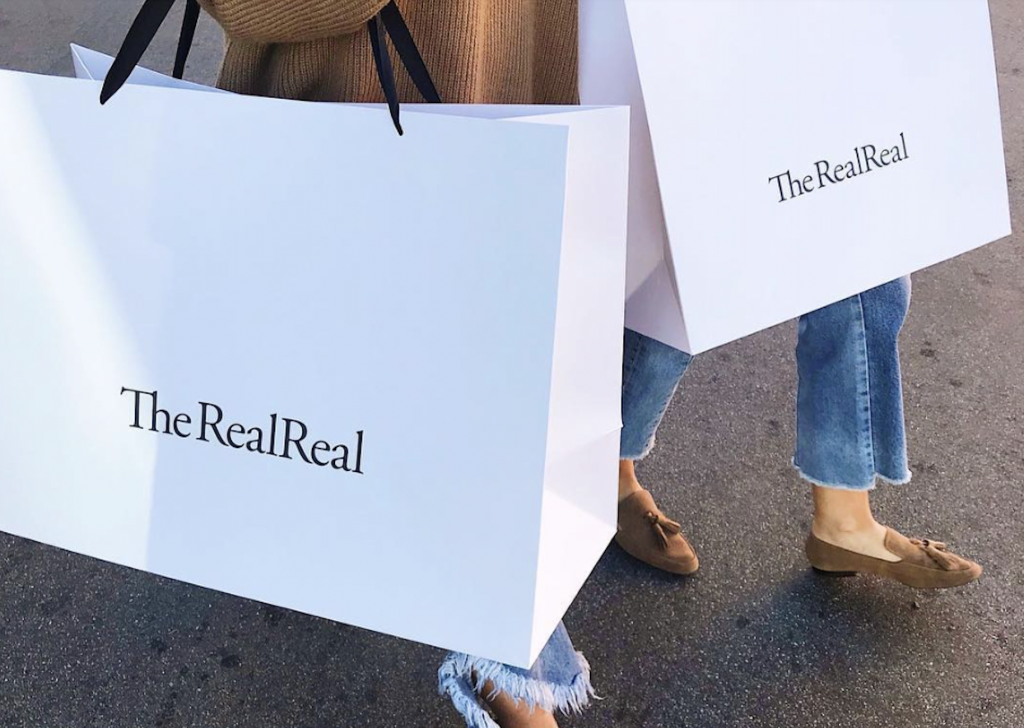From brick-and-mortar outposts to fulfillment warehouses, no small number of retailers in the U.S. have found ways to keep business going despite on the onset and continued impact of COVID-19, and increased mandates about how – and what – businesses should proceed in light of the global health pandemic. Across the country, the primary determining factor is whether a business is “essential,” which has prompted employees and the media, alike, to question what that term actually means, as certain arms of companies like Nordstrom, Neiman Marcus, and The RealReal continue to service consumers with upscale items like designer bags and skincare products.
As Reuters reported on Monday, as U.S. authorities ordered shutdowns of non-essential businesses to fight the continued spread coronavirus, “retailer Nordstrom closed hundreds of stores and gave in-store workers three weeks’ pay, calling their safety its top priority.” At the same time, the Seattle, Washington-based department store chain’s warehouses remain open, with laborers, such as 34-year old Meagan Christensen, who works at one of Nordstrom’s warehouses in Iowa, showing up to work in order to facilitate shipments of “designer-line apparel and cosmetics, none of this is make-it-or-break-it for the current situation.”
The warehouses of chains like Wayfair, Kohl’s and Macy’s, and even Neiman Marcus, and the fulfillment centers for the likes of Amazon, of course, have remained open, with the latter announcing last month that it was prioritizing “essential” items, such as medical supplies, household staples and other high-demand products, and thereby, limiting the items that third-party sellers could store in its fulfillment centers. Jeff Bezos’ $1 trillion e-commerce operation has since revealed, less than a month later, that it “will begin allowing third-party sellers on its platform to resume shipping so-called nonessential items this week,” according to the Wall Street Journal.
All the while, luxury resale site The RealReal has come under fire for continuing to operate two of its fulfillment centers in New Jersey, a move that has ruffled employee feathers. “I work for an online luxury consignment brand, taking pictures of clothing to be then uploaded to a website for people to browse and buy from. This is not an essential business,” wrote one employee in a letter to New Jersey’s governor last month, as reported by the New York Times. A representative for the company told TFL that “New Jersey’s directive supports businesses maintaining essential operations, and we are following that direction.”
While an array of businesses have been forced to close their consumer-facing brick-and-mortar operations, and at least some major digital retailers, such as Net-a-Porter have voluntarily opted to temporarily shutter their warehouses in order to protect the health and safety of their workforces, no small number of brands and retailers remain open with business continuing, more or less, as usual thanks to their e-commerce capabilities.
How is it that despite the Department of Homeland Security’s Cybersecurity and Infrastructure Security Agency (CISA”) issuing its Guidance on the Essential Critical Workforce on March 28 – an advisory list aimed at identifying essential workers – that companies shipping the likes of “Gucci shades, face cream, and sofas,” as Reuters put it, can remain open?
As it turns out, in identifying some (but not all) critical infrastructure sectors, workers, and functions, the CISA Guidance – which is meant to “help State, local, tribal and territorial officials as they work to protect their communities” – lists “workers supporting e-commerce through distribution, warehouse, call center facilities, and other essential operational support functions” as essential. Retailers are using this carveout to state-specific stay-at-home orders, a carveout that was almost certainly drawn up to enable business that provide essential consumers products to remain in operation, as a “loophole,” according to Reuters, “to piggyback on exemptions intended primarily to ensure the flow of necessities.”
In addition to the CISA exemption, there is a lot of room for leeway for retailers given that what qualifies as an “essential business” tends to vary by state. “Some statewide orders, such as California, base their definition of an essential business on the [CISA] Guidance,” according to Bryan Cave’s Merrit Jones and Thomas Lee. Meanwhile, some states, such as Michigan, are going beyond the CISA Guidance and mandating rules of their own. Michigan Governor Gretchen Whitmer recently followed in the footsteps of states like Vermont, and announced a new order this month that prohibits big box stores, such as Walmart, Costco, and Target from selling and advertising “nonessential” items like plants, furniture, carpeting, and paint. “If you’re not buying food or medicine or other essential items, you should not be going to the store,” Whitmer stated in connection with the newly-issued order.
What the retailers are allowed to sell and advertise? “Groceries, medical supplies, or items that are necessary to maintain the safety, sanitation, and basic operation of residences.”
In addition to state-to-state variations in terms of stay-at-home orders, “The approach taken by different enforcement agencies may also vary,” Jones and Lee assert. And even still, in updating the Guidance early this month, Christopher Krebs, the director of the Arlington, Virginia-based CISA, revealed that the list of functions identified in the Guidance “is not intended to be the exclusive list of critical infrastructure sectors, workers, and functions that should continue during the COVID-19 response across all jurisdictions.” Instead, he said, “Individual jurisdictions should add or subtract essential workforce categories based on their own requirements and discretion.”
Jones and Lee note that potential inconsistencies between states and agencies are bolstered by the fact that “some stay-at-home orders include provisions allowing even non-essential businesses to continue ‘minimum basic operations,’ while others do not.”
The nuances of – and the potential wiggle room that appears to exist when it comes to – what exactly constitutes an essential business or function very well may enable certain arms or divisions of companies to remain open, while others are required to temporarily shut down. This is proving particularly common as companies aim to balance the safety of their workforce and of consumers with the need for financial survival. This is, of course, no easy feat.
Given the delicacy of the balance, these instances are not to be considered without also identifying the potential risks at play from a public relations perspective. The RealReal, for instance, was very publicly taken to task by way of a New York Times article, which cited one employee as saying, “I don’t care how much [they] pay me at this point, [they’re] not protecting me,” citing the unwillingness of the company to completely cease operations.
Similarly, Nordstrom and Amazon have had a fair share of strongly-worded articles devoted to their continued operations, particularly as many of the the laborers at issue – simultaneously “scared” and in need of a paycheck – say that they are being deemed “essential” by their employers but “are not [being] treated as essential” when it comes to compensation and working conditions. While many companies are rushing to do their part to address COVID-19 and engage in headline-making acts of philanthropy, these less-than-attractive tactics – if lodged into the consumer psyche – could serve to haunt companies long after the Coronavirus has come to pass … even if they are perfectly legal.
UPDATED (April 14, 2020): This article was updated to include a comment from The RealReal.














